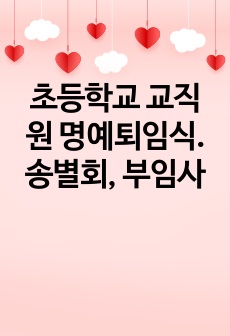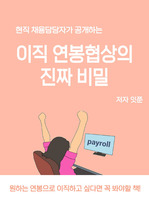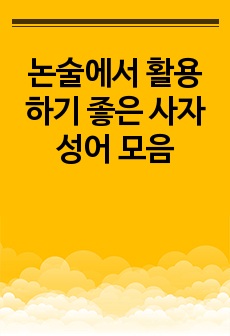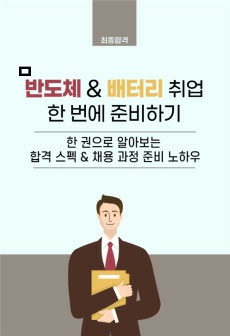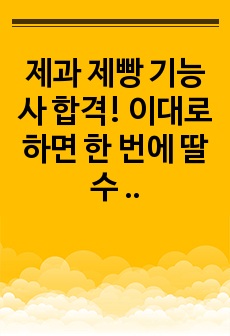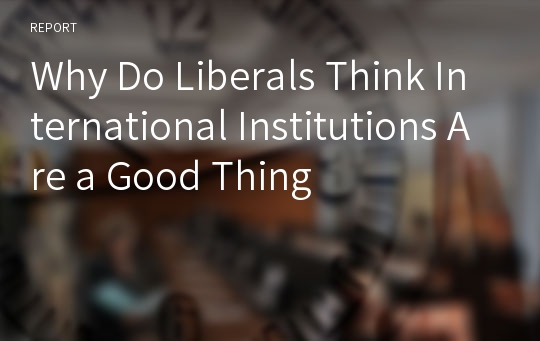Why Do Liberals Think International Institutions Are a Good Thing
내꿈은희동이
다운로드
장바구니
목차
1. Introduction2. International Institutions and Liberalism
3. Advantages of International Institutions
4. Limitations of International Institutions
5. Perspectives of International Institutions
6. Conclusion
References
본문내용
The creation of international organisations as a part of the Bretton Woods system can be viewed as a way to implement liberalist norms into global politics and to contrast the realist notions of national interests’ dominance (Jaafar 2018, 9). The United Nations Security Council (UNSC) is one of these institutions that is responsible for international peacekeeping and can authorise military action and economic sanctions against potential aggressors. On the global scale, the period following the formation of this organisation was characterised by high degrees of stability with no armed conflicts existing in the Western Hemisphere by 2016 for the first time in history since the 1600s (Fettweis 2017, 423). That said, this security could be largely attributed to the unipolar world model supported by the US hegemony that is currently shifting towards the multipolarity or nopolarity system. This can also be viewed as a substantial limitation of this institution’s efficiency due to the dependence of the UNSC on the personal interests of this country, which is frequently criticised by international relations experts.참고 자료
Aaronson, Susan Ariel, Rodwan Abouharb, and Daniel Wang. 2015. "The Liberal Illusion Is Not a Complete Delusion: The WTO Helps Member States Keep the Peace Only When It Increases Trade." Global Economy Journal 15 (4): 455-484.Aitken, Harry. 2017. "The Security Council and International Law Enforcement: A Kelsenian Perspective on Civilian Protection Peacekeeping Mandates." Journal of Conflict and Security Law 22 (3): 395-432.
Alexandre, Marc. 2016. “Conflict and Violence in the 21st Century”. United Nations. https://www.un.org/pga/70/wp-content/uploads/sites/10/2016/01/Conflict-and-violence-in-the-21st-century-Current-trends-as-observed-in-empirical-research-and-statistics-Mr.-Alexandre-Marc-Chief-Specialist-Fragility-Conflict-and-Violence-World-Bank-Group.pdf
Al-Own, Gasem. 2017. "Evolution of Asset-Freezing through the UN Security Council." Journal of Arts and Humanities 6 (4): 53-59.
Bellamy, Alex. 2015. "International Responses to Human Protection Crises: Responsibility to Protect and the Emerging Protection Regime." RCCS Annual Review 7 (1): 95-112.
Buchan, Russell. 2015. "Developing Democracy through Liberal Informational Law." Cambridge Journal of International and Comparative Law 4 (1): 319-343.
Duncombe, Constance, and Tim Dunne. 2018. "After liberal world order." International Affairs 94 (1): 25-42.
Fettweis, Christopher J. 2017. "Unipolarity, Hegemony, and the New Peace." Security Studies 26 (3): 423-451.
Genser, Jared. 2017. "The United Nations Security Council's Implementation of the Responsibility to Protect: A Review of Past Interventions and Recommendations for Improvement." Chinese Journal of International Law 18 (1): 420-501.
Guido, Mingels. 2017. “We Live in Peaceful Times”. Statista. https://www.statista.com/chart/10054/share-of-war-dead-over-time-since-world-war-two/
Heine, Jorge, and Brigitte Weiffen. 2014. 21st Century Democracy Promotion in the Americas: Standing up for the polity. London: Routledge.
Hosli, Madeleine O., and Thomas Dorfler. 2017. "Why is change so slow? Assessing prospects for United Nations Security Council reform." Journal of Economic Policy Reform 1 (1): 1-16.
Ikenberry, G. John. 2015. "The future of liberal world order." Japanese Journal of Political Science 16 (3): 450-455.
Jaafar, Jamie. 2018. "Reconciling realism and constructivism: An analysis of national interests and international institutions." Culture Mandala: The Bulletin of the Centre for East-West Cultural and Economic Studies, 12 (2): 9-22.
Jacobsen, Katja Lindskov, and Troels Gausla Engell. 2018. "Conflict prevention as pragmatic response to a twofold crisis: liberal interventionism and Burundi." International Affairs 94 (2): 363-380.
Jang, Jinseop, Jason McSparren, and Yuliya Rashchupkina. 2016. "Global governance: present and future." Palgrave Communications 2 (1): 1-5.
Kanetake, Machiko. 2017. The UN security council and domestic actors: distance in international law. London: Routledge.
Malito, Debora Valentina. 2017. "Neutral in favour of whom? The UN intervention in Somalia and the Somaliland peace process." International Peacekeeping 24 (2): 280-303.
Manuel, Frohlich and Williams, Abiodun. 2018. The UN Secretary-General and the Security Council: A Dynamic Relationship. Oxford: Oxford University Press.
Nicol, Davidson. 2015. Paths to peace: the UN Security Council and its presidency. London: Elsevier.
Ozkan, Ersan, and Hakan Cem Cetin. 2016. "The Realist and Liberal Positions on the Role of International Organizations in Maintaining World Order." European Scientific Journal, 12 (17): 85-96.
Ralph, Jason, and Jess Gifkins. 2017. "The purpose of United Nations Security Council practice: Contesting competence claims in the normative context created by the Responsibility to Protect." European Journal of International Relations 23 (3): 630-653.
Schaefer, Kai. 2017. “Reforming the United Nations Security Council: Feasibility or Utopia?” International Negotiation, 22 (1): 62-91.
Shirley, Scott and Ku Charlotte. 2018. Climate Change and the UN Security Council. Hoboken: Edward Elgar Publishing.
Sinclair, Guy Fiti. 2015. "State Formation, Liberal Reform and the Growth of International Organizations." European Journal of International Law 26 (2): 445-469.
Sterling-Folker, Jennifer. 2015. "All hail to the chief: Liberal IR theory in the new world order." International Studies Perspectives 16 (1): 40-49.
Whittle, Devon. 2015. "The Limits of Legality and the United Nations Security Council: Applying the Extra-Legal Measures Model to Chapter VII Action." European Journal of International Law 26 (3): 671-698.
Yan, Xuetong. 2018. "Chinese Values vs. Liberalism: What Ideology Will Shape the International Normative Order?." The Chinese Journal of International Politics 11 (1): 1-22.











